Illegal shootings continue to endanger birds of prey across France, with protected species regularly falling victim. But amid the difficult reality of poaching, a rare story of recovery has emerged. In early January, a Cinereous Vulture (Aegypius monachus)—an extremely threatened species in France—was found severely injured in the Alpes-de-Haute-Provence. Thanks to prompt rescue efforts and careful rehabilitation, the bird has since recovered and been released back into the wild.
A deliberate shooting of a protected species
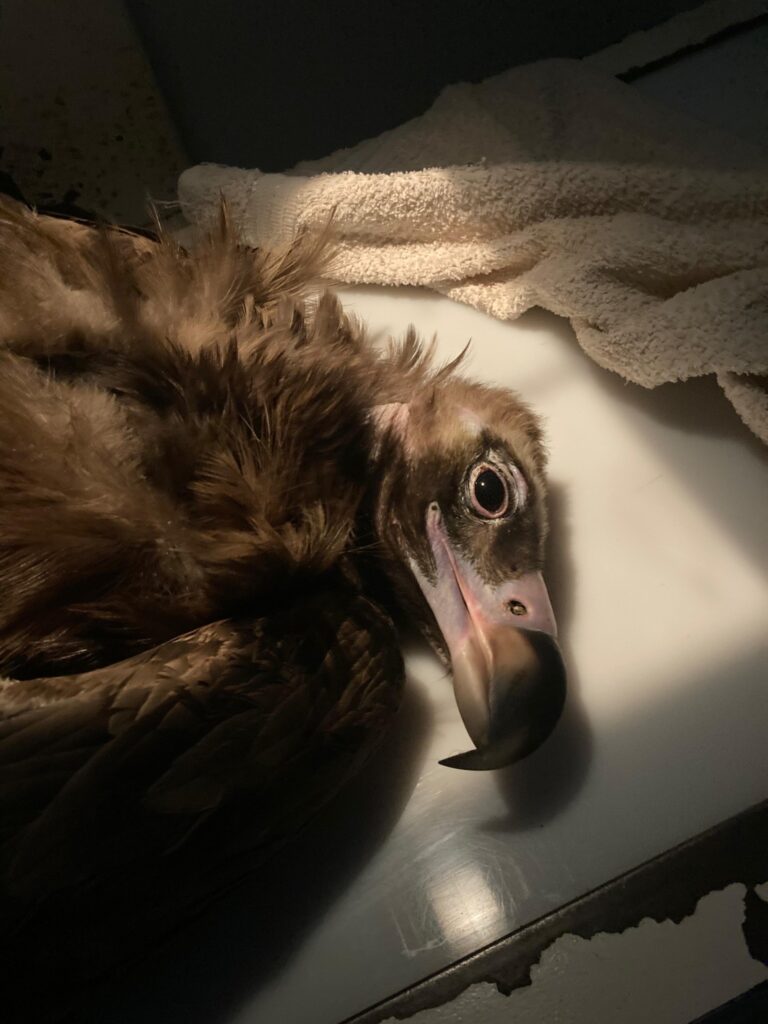
A young Cinereous Vulture, later identified as a female named ILD, was found lying near a riverbank in visible distress. She couldn’t stand on one leg and had a bloodshot eye, suggesting serious internal bleeding.
X-rays at the rescue centre (Centre régional de sauvegarde de la faune sauvage – LPO PACA) confirmed the extent of her injuries: more than 60 lead pellets scattered throughout her body. Her head, wings, body and legs were all hit, likely from a close-range shotgun blast. Survival in such a condition was unexpected.
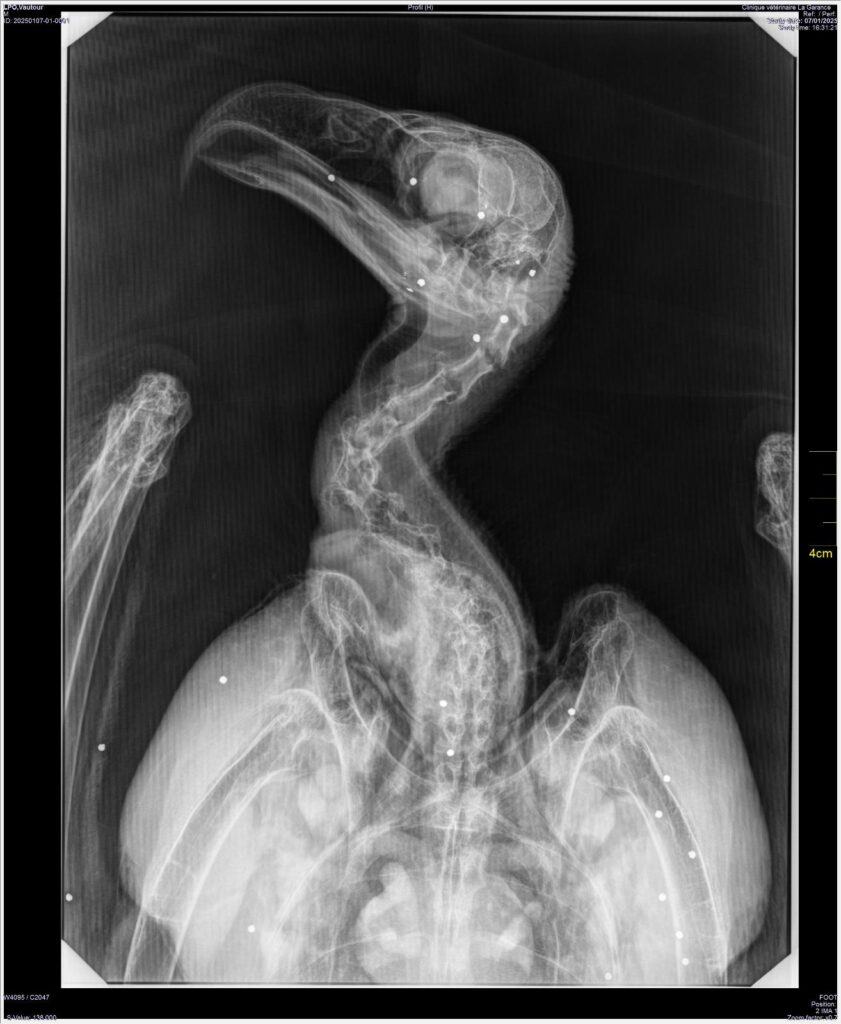
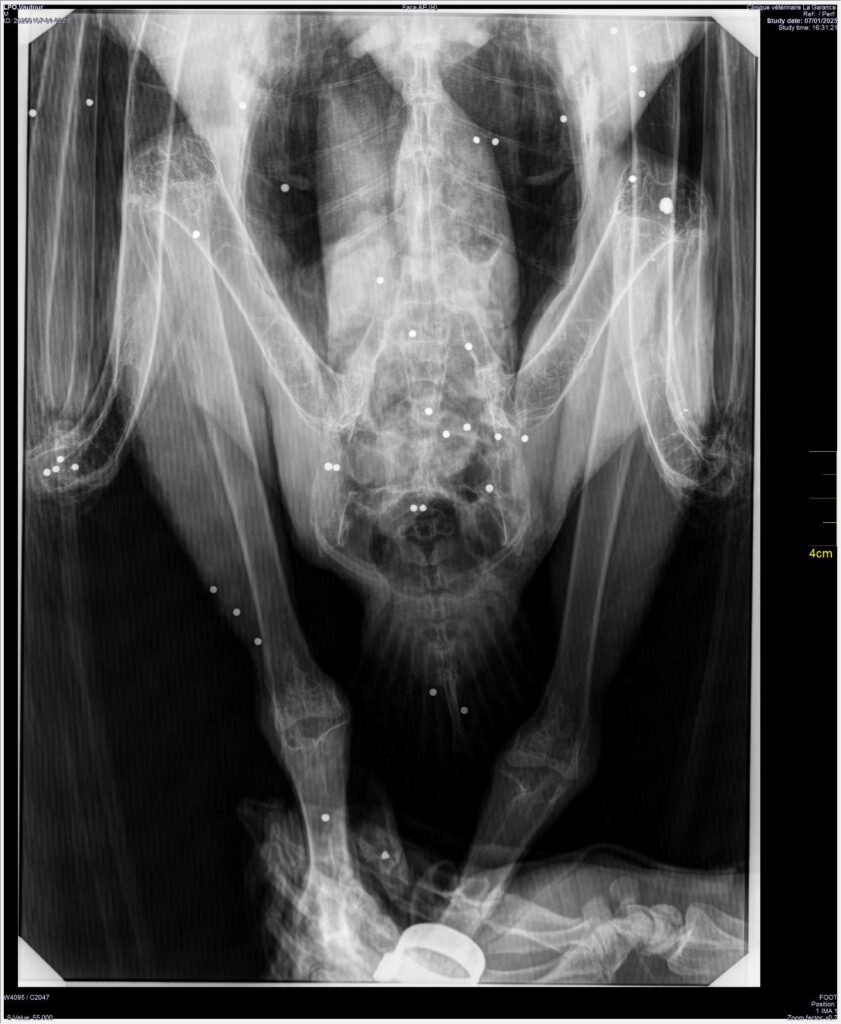
A vulture on the verge of breeding
ILD’s case gained further importance when it was discovered that she had been ringed in 2021 as a chick in the Baronnies region. She was part of France’s National Action Plan for Cinereous Vultures, a conservation programme aimed at reintroducing and monitoring the species in areas where it had previously disappeared.
At just four years old, ILD had recently reached breeding maturity—a crucial phase in a vulture’s life cycle. She had also started pairing with a male from Spain. The shooting not only jeopardised her life but also disrupted the formation of a potential new breeding pair in the region.
Recovery and return to the wild
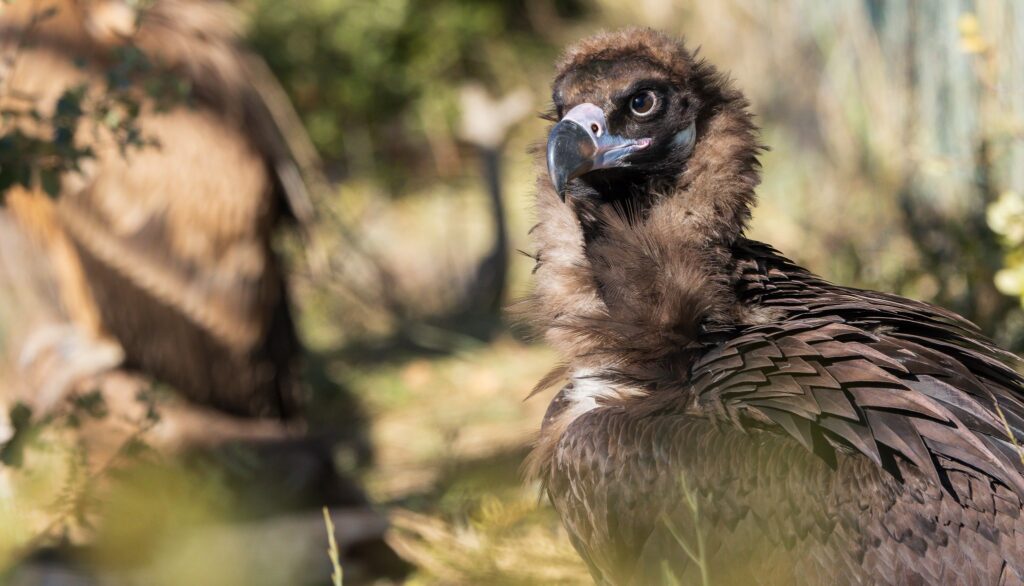
ILD was placed in intensive care for several weeks. Her injuries, though serious, gradually began to heal. She regained strength and mobility in her injured leg. Once stable, she was transferred to a large aviary for rehabilitation.
Eventually, ILD was deemed fit to return to the wild. She was released in the Verdon Gorges, a key vulture habitat with continuous conservation work. Fitted with a GPS transmitter, she is now being monitored remotely to track her reintegration.
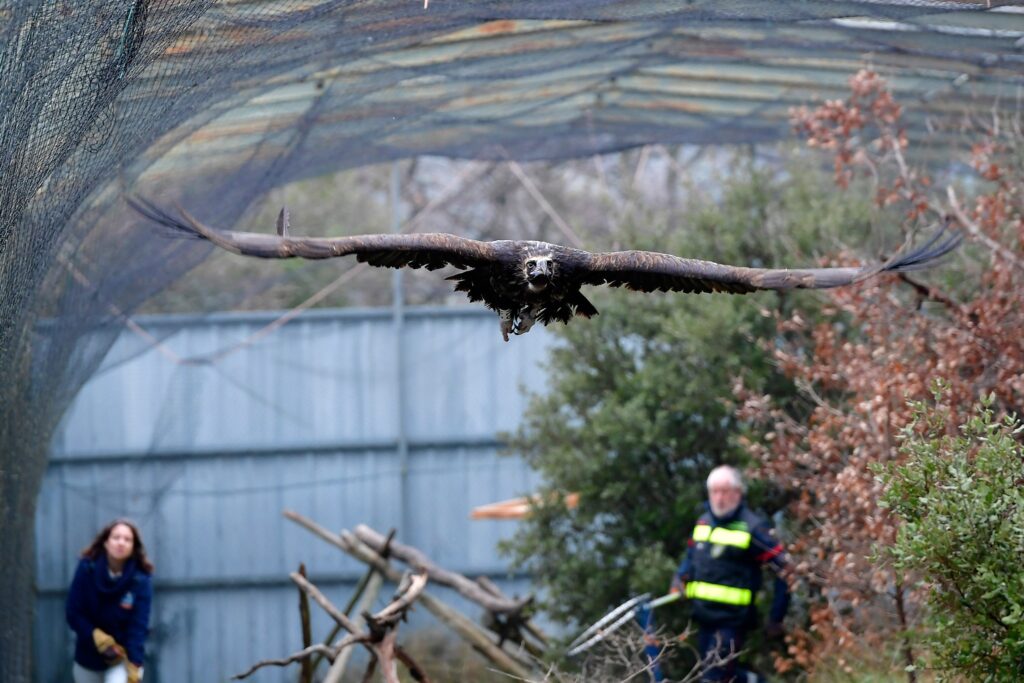
Since her release, ILD has flown hundreds of kilometres and was recently observed in the field in the Verdon area—alive, active, and adapting well. She even flew over the rescue centre once.
One case among many
While ILD’s survival is encouraging, it is unfortunately not typical. She is one of 26 protected birds confirmed to have been illegally shot in France during the 2024–2025 hunting season. Most of those birds did not survive.
These incidents have all been reported to the French Biodiversity Office (OFB). In ILD’s case, a formal investigation is underway to identify those responsible. Under French law, killing a protected species carries a potential penalty of up to three years in prison and fines of €150,000. In practice, however, few cases result in convictions.
Impunity is not an option
The continued persecution of protected birds like vultures is unacceptable, and what makes it worse is that most offenders usually face no consequences. This must change.
The criminal actions of a few cannot undermine decades of conservation work to restore vulture populations in Europe. Hunting associations have a responsibility to help stop such behaviour, and law enforcement and judicial authorities must treat these cases seriously. Spain has shown that strict penalties and prison sentences can serve as powerful deterrents.
Through initiatives like the WildLIFE Crime Academy—now including French professionals—we are helping train law enforcement and forensic experts to better investigate and prosecute wildlife crimes like poaching.
We must also continue to collaborate with all sectors of society, including hunters, to demonstrate that vultures are not a threat but an essential part of healthy ecosystems, delivering both ecological and economic benefits to France and beyond.



